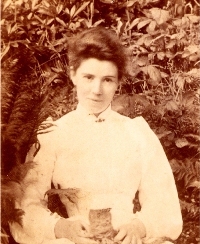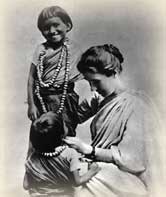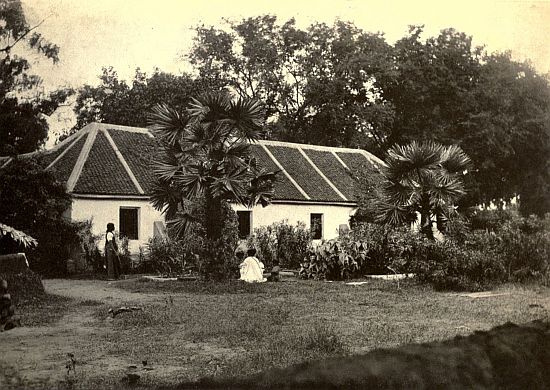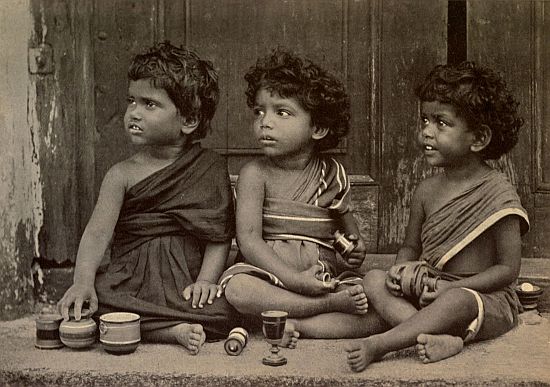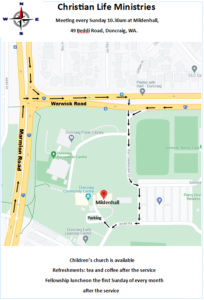Amy Wilson-Carmichael
Amy Wilson Carmichael (16 December 1867 – 18 January 1951) was a protestant Christian missionary in India, who opened an orphanage and founded a mission in Dohnavur, India. She served in India for 55 years without furlough and wrote many books about the missionary work there.
Amy Carmichael was born in the small village of Millisle, County Down, Northern Ireland to David and Catherine Carmichael. Her parents were Presbyterians and she was the eldest of seven siblings. Amy’s father died when she was 18. Carmichael was the founder of the Welcome Evangelical Church in Belfast.
Her calling
It was at the Keswick Convention of 1887 that she heard Hudson Taylor, founder of the China Inland Mission speak about missionary life. Soon afterwards, she became convinced of her calling to missionary work. She applied to the China Inland Mission and lived in London at the training house for women, where she met author and missionary to China, Mary Geraldine Guinness, who encouraged her to pursue missionary work. In many ways she was an unlikely candidate for missionary work. She suffered neuralgia, a disease of the nerves that made her whole body weak and achy and often put her in bed for weeks on end.
A Keswick Missionary
In 1893 Amy Carmichael travelled to Japan for fifteen months where she served as a ‘Keswick Missionary.’ In 1895 she arrived in India where she found her life-long vocation. In 1898 she took in her first woman refugee. 1899 took in first girl refugee. In 1900 she moved to Dohnavur. Dohnavur is situated in Tamil Nadu, thirty miles from the southern tip of India. 1901 Amy rescued her first ‘Temple child’, started a mission, at first an orphanage which eventually became ‘Dohnavur Fellowship’. She was commissioned by the Church of England Zenana Mission.
Hindu temple children were young girls dedicated to the gods and forced into prostitution to earn money for the priests i.e Devadasi. Much of her work was with young ladies, some of whom were saved from forced prostitution. The organization she founded was known as the Dohnavur Fellowship.
The Old Nursery
NOW I know why God put you in Dohnavur when He wanted this work done. He hid you from the eyes of the world for the little children’s sake. He knew this work could never have been done by the road-side, so He hid you.
The speaker was a Christian friend from Palamcottah, an Indian lawyer who, for the first time, had come out to see us. He had found our approaches appalling, and had wondered at first why we lived in such an out-of-the-way place, three or four miles from the nearest road, and twenty-four from civilisation. When he saw the children he understood. Later, he helped us in an attempt to save two little ones in danger, and insisted not only upon paying his own and our worker’s expenses, but in sending us a gift for the nurseries. With the gift came a letter full of loving, Indian sympathy; and again he added as before:
The Lord hid you in that quiet place for the little children’s sake.
Sometimes when the inconveniences of jungle life press upon us, we remember our friend’s words:
This work could never have been done by the road-side, so He hid you.
We have children with us who would not have been safe for a day had we lived near a large town or near a railway.
Lotus Buds
Elisabeth Elliot writes, “When she told of the child-wives, twelve or ten or eight years old, people said, ‘Oh, you mean betrothed! Another case of missionary exaggeration!’ No, she did not mean betrothed. ‘We mean married.’”
The Dohnavur Fellowship would become a sanctuary for over one thousand children who would otherwise have faced a bleak future.
In an effort to respect Indian culture, members of the organization wore Indian dress and the children were given Indian names. She herself dressed in Indian clothes, dyed her skin with dark coffee, and often travelled long distances on India’s hot, dusty roads to save just one child from suffering.
Her life-long ministry was that of saving children from sexual exploitation in Hindu temples. The Dohnavur Fellowship originated out of Amy’s work and grew into a large Christian community where she lived, surrounded by many children and staff and frequent visitors until her death in 1951.
Amy writes from her experience as someone who was fully engaged with people:
When you cannot anymore shut your door, cannot count on being alone, it is easy to forget that there is another door which can be shut. We can sink deep into the quietness which is within and not without …. We can emerge (as it were) from that stillness at a word, at a touch, and yet remain within it. In Him, not in our circumstances, is our peace. …..
O Thou, who are more near to us than air.
Let me not miss Thee, ever, anywhere.
The years 1903 to 1912 were years of growth. 1912 brought recognition from Queen Mary. Amy founded spiritual support group called the ‘Sisters of the common Life’ in 1916. In 1918 she was awarded Kaiser-i-Hinds Medal for service to India. In 1925 Amy Carmichael broke ties with all mission societies after a take-over attempt. In 1929 a hospital was added.
She served as a missionary in India for fifty-six years without furlough.
Amy died in India at the age of 83. She asked that no stone be put over her grave; instead, the children she had cared for put a bird bath over it with the single inscription “Amma”, which means mother in the Tamil.
Yes, God’s glory is our plea, highest, strongest, most impelling pleas of all. But, Oh by the thought of the myriads who are passing, by the thought of the coming Lord, by the infinite realities of life and death, heaven and hell, by our Saviour’s cross and passion, we plead with all those who love Him, but have not considered these things yet, consider them now!
Let Him show us the vision of the Glory, and bring us to the very end of self, let Him touch our lips with the live coal, and set us on fire to burn for Him, yea, burn with consuming love for Him, and a purpose none can turn us from, and a passion like a pure white flame, a passion for the Glory of God!
~ Amy Wilson Carmichael.
Acknowledgement: Reference.
